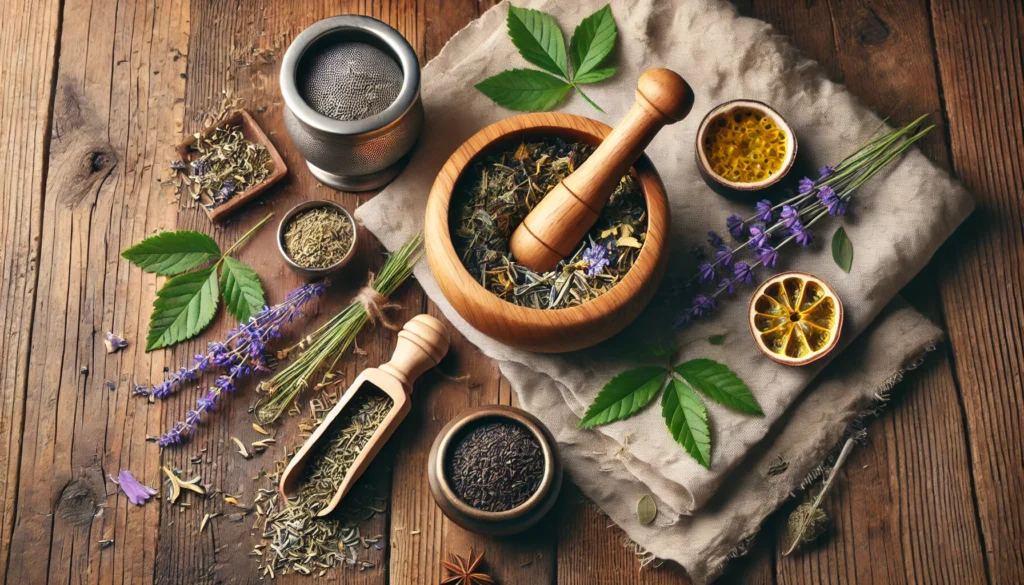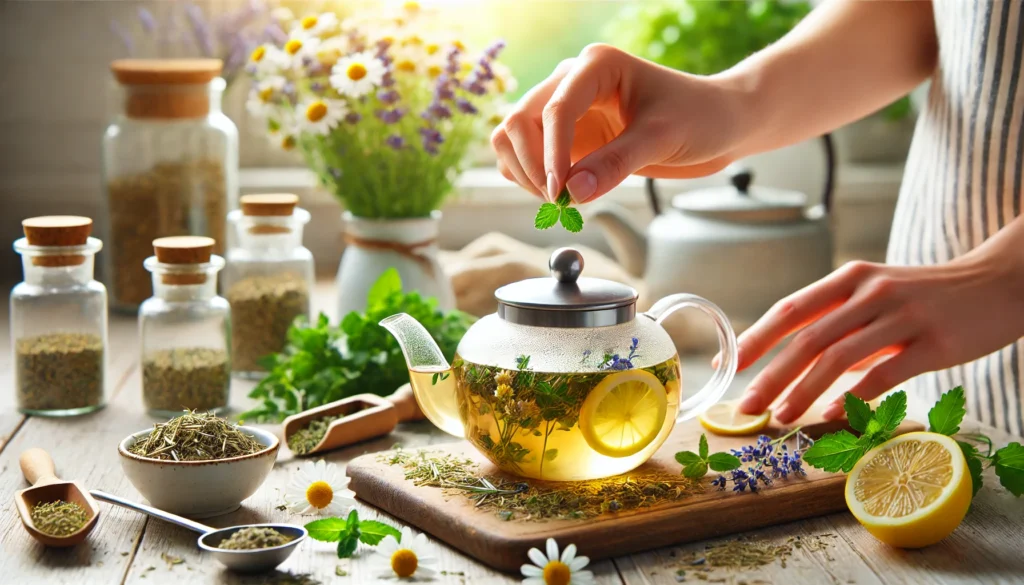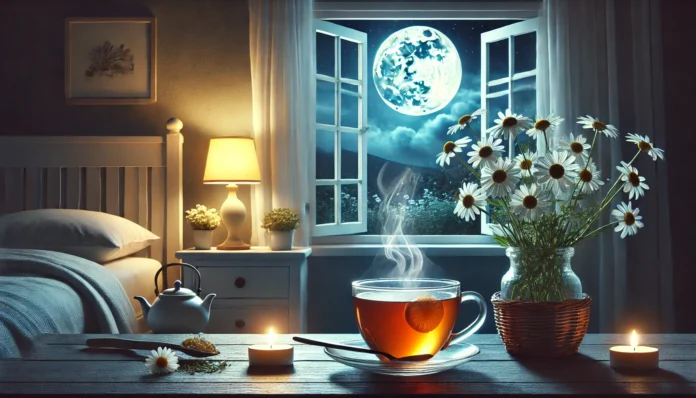Insomnia is a persistent and complex condition affecting millions of people worldwide. As society grows more fast-paced and digitally connected, sleep disturbances have escalated to epidemic proportions. The rising prevalence of sleeplessness has driven an equally significant surge in interest toward natural and holistic solutions. Modern sleep science now recognizes the value of integrating traditional wisdom with clinical insight to address the root causes of insomnia, rather than just masking symptoms with pharmaceutical interventions. Natural remedies for insomnia, especially those grounded in the use of calming herbs and holistic approaches, have emerged as highly effective and gentle alternatives.
You may also like: Proven Relaxation Techniques for Stress and Anxiety: Evidence-Based Strategies to Calm Your Mind and Body
Understanding the true nature of insomnia is crucial in exploring the diverse array of natural solutions available. Insomnia is not merely about the inability to fall asleep; it encompasses difficulty staying asleep, waking up too early, or experiencing non-restorative sleep despite sufficient opportunity. Sleep deprivation has profound consequences on mental health, cognitive functioning, cardiovascular wellness, and immune response. While prescription medications may offer short-term relief, they often carry the risk of dependency, tolerance, and undesirable side effects. This has led both researchers and individuals alike to explore insomnia treatment through natural remedies.
Herbs that promote sleep have long held a revered place in traditional healing systems. From ancient Ayurvedic practices in India to Traditional Chinese Medicine and Western herbalism, calming herbs have been used to alleviate nervous tension, ease restlessness, and nurture the sleep cycle. Modern clinical research continues to validate many of these traditional claims, offering a compelling blend of empirical evidence and ancestral wisdom. Today, a wide variety of herbal supplements for sleep, when used correctly and mindfully, serve as powerful yet gentle tools to encourage deeper, more restful slumber.
This article develops into the most effective natural remedies for insomnia, with a special emphasis on expert-backed herbal solutions that promote restful sleep without side effects. Grounded in the principles of EEAT—Experience, Expertise, Authoritativeness, and Trustworthiness—we explore the science, safety, and real-world application of these botanical aids, providing a comprehensive and evidence-based resource for individuals seeking natural help for sleep. Whether you’re navigating the challenges of chronic sleeplessness, occasional trouble drifting off, or stress-related insomnia, these remedies offer a path toward restoration, renewal, and lasting well-being.

The origins of herbal remedies for sleep can be traced back thousands of years, spanning across cultures and continents, long before the advent of modern pharmaceuticals. In ancient Greece, physicians like Hippocrates and Galen prescribed plants such as valerian root and poppy extracts to alleviate sleeplessness and agitation. Meanwhile, in India, the Ayurvedic system developed a sophisticated approach to balance the doshas—Vata, Pitta, and Kapha—with herbs like ashwagandha and brahmi often used to calm the nervous system and prepare the body for rest. Traditional Chinese Medicine, another cornerstone of ancient healing, emphasized the importance of yin and yang balance for healthy sleep, utilizing herbs like suanzaoren (Ziziphus jujuba seed) and he huan pi (Albizia bark) for their sedative and anxiety-reducing effects.
These traditional practices were rooted in an intuitive understanding of the body’s connection to the natural world. Healers and herbalists observed how specific plants interacted with mood, energy, and the sleep-wake cycle. Over centuries, this knowledge evolved into formalized systems of medicine that emphasized harmony, prevention, and the use of plant-based remedies to gently restore physiological balance. These time-tested principles still underpin many of the natural treatment strategies used today, particularly in the realm of insomnia relief. As sleep disorders continue to rise in the modern era, this ancient wisdom has not only endured but has gained new credibility through the lens of scientific validation.
Contemporary research has increasingly supported what traditional practitioners have long known: that certain herbs exert measurable effects on the central nervous system, often by influencing neurotransmitters such as gamma-aminobutyric acid (GABA), serotonin, and melatonin. Clinical studies on herbs like valerian, passionflower, chamomile, and lemon balm have demonstrated their capacity to shorten sleep latency, reduce nighttime awakenings, and improve overall sleep quality. These findings highlight the growing alignment between evidence-based medicine and holistic practices, reinforcing the legitimacy of using natural cures for insomnia in both clinical and at-home settings.
What distinguishes natural remedies to sleep from conventional treatments is not only their gentle action but also their broader support for mental and emotional well-being. Many herbal sleep aids are also considered the best herbs for anxiety, providing dual benefits for those whose insomnia is stress-induced or related to emotional imbalance. This intersection of calming herbs and sleep-promoting botanicals reflects an integrative approach—addressing not just the symptom of sleeplessness but also the psychological and physiological triggers that contribute to it. Through this lens, herbal supplements for sleep serve as bridges between ancient traditions and modern evidence, offering a gentle yet profound pathway to restoration.
The renewed interest in holistic medicine for insomnia also reflects a larger societal shift toward preventive and personalized care. Patients and healthcare providers alike are increasingly seeking alternatives that align with the body’s natural rhythms and prioritize long-term health over short-term fixes. This evolving mindset not only underscores the relevance of traditional wisdom but also propels forward a new era of research dedicated to uncovering how natural remedies for trouble sleeping can be effectively integrated into modern wellness routines. In doing so, the line between ancient healing and contemporary science continues to blur, creating a unified approach to treating insomnia naturally and sustainably
Embracing Natural Remedies for Sleeplessness: A Restorative Path to Better Sleep
In conclusion, the journey toward restful sleep does not have to begin and end with prescription medications or invasive interventions. For many, the path to meaningful, long-lasting sleep improvement lies in embracing natural remedies for insomnia that have stood the test of time and are now reinforced by contemporary scientific evidence. Herbs that promote sleep, especially when selected with care and used under informed guidance, offer not only relief from sleeplessness but also a gentle recalibration of the nervous system. As we’ve seen, natural treatments for sleeplessness—ranging from valerian and passionflower to ashwagandha and lemon balm—provide calming effects that benefit both body and mind, especially when insomnia is tied to stress or emotional unrest.
These herbal sleep aids are not just gentle—they’re also deeply rooted in a legacy of holistic healing that views the body as an interconnected system. Rather than isolating sleep as a standalone issue, holistic medicine for insomnia addresses the broader picture: anxiety, lifestyle, hormonal imbalances, and even circadian misalignment. For older adults, especially, seeking the best natural sleep aid for the elderly can result in fewer side effects and more consistent sleep quality than traditional sedatives. The growing field of integrative medicine continues to support these approaches as safe, accessible, and often profoundly effective when practiced thoughtfully.

Frequently Asked Questions: Natural Remedies for Insomnia
1. Can natural remedies for sleeplessness be personalized for different sleep disorders?
Absolutely. Natural remedies for sleeplessness are not one-size-fits-all. While some individuals benefit most from calming herbs like valerian or chamomile, others may need adaptogens such as ashwagandha to balance stress hormones. Personalized approaches consider your lifestyle, underlying causes of insomnia, and overall health. For example, someone with anxiety-induced insomnia might turn to the best herbs for anxiety relief, while others with disrupted circadian rhythms may benefit from melatonin-regulating herbs that promote sleep. Working with an integrative health practitioner ensures that natural treatment for sleeplessness is tailored to your specific needs.
2. Are there specific natural remedies for trouble sleeping due to hormonal imbalance?
Yes, several natural remedies target hormone-related sleep disturbances. Hormonal changes—especially during menopause, pregnancy, or thyroid disorders—can disrupt sleep. Herbs like black cohosh and chasteberry help support hormonal regulation and, when combined with herbal sleep aids such as passionflower or hops, may enhance sleep quality. These natural remedies to sleep better often work by stabilizing estrogen and progesterone levels, which play vital roles in regulating sleep cycles. When used thoughtfully, they can serve as an effective insomnia treatment natural remedy for those with hormonally driven sleeplessness.
3. How do herbal supplements for sleep differ from pharmaceutical sleep aids?
Herbal supplements for sleep typically support the body’s own mechanisms for initiating and maintaining sleep, while pharmaceutical drugs often override these systems. Unlike many synthetic medications, herbs that promote sleep—such as lemon balm and California poppy—tend to work gradually and synergistically with the nervous system. They are less likely to cause dependency or grogginess the next day, making them an appealing option for those seeking a natural cure for sleeplessness. However, it’s important to note that efficacy can vary, and consistency is key. Patience and proper dosing are essential components of a successful natural treatment for insomnia.
4. What are some overlooked calming herbs that might help with insomnia?
Beyond the commonly known herbal sleep aids, there are lesser-known but effective calming herbs worth exploring. Skullcap, magnolia bark, and holy basil are emerging as potent agents in reducing anxiety and promoting deeper rest. These herbs for anxiety and sleep often modulate cortisol levels and support neurotransmitter balance, two essential factors in chronic insomnia. When paired with more established natural remedies to help sleep, they can round out a comprehensive regimen. These nuanced additions to a holistic medicine for insomnia plan can make a substantial difference for those who haven’t found relief from more mainstream options.
5. How effective are natural remedies to help sleep in older adults?
Older adults often face unique sleep challenges, such as fragmented sleep and reduced melatonin production. The best natural sleep aid for elderly individuals typically involves gentle herbs like valerian, linden flower, and lemon balm, which are known for their calming properties and minimal interactions with other medications. Natural help for sleep in aging populations also includes lifestyle modifications such as light exposure during the day and limiting screen time at night. The efficacy of natural remedies for insomnia in seniors increases when paired with these behavioral adjustments. When managed holistically, herbs for sleeplessness can safely support restful sleep in older adults.
6. Can natural remedies for insomnia support emotional resilience?
Yes, many herbs serve a dual purpose: they not only encourage sleep but also build emotional resilience. Adaptogens such as rhodiola and reishi mushroom help regulate stress response over time, fostering stability in mood and energy levels. The best herbs for stress and anxiety tend to also be the best herbs for sleep, offering comprehensive support for individuals dealing with emotional upheaval. Herbal supplements for sleep often include these adaptogens in synergistic blends. By addressing both emotional and physiological components of insomnia, natural treatment for insomnia supports both sleep quality and mental health.
7. How do I identify high-quality herbal supplements for sleep?
To ensure safety and efficacy, choose supplements that are third-party tested and made by reputable brands. Look for standardized extracts that specify active compounds—such as valerenic acid in valerian or apigenin in chamomile. Transparency in sourcing and manufacturing processes is essential, especially for those using natural remedies for insomnia regularly. A quality herbal sleep aid will often list dosage recommendations supported by clinical studies. By vetting your remedies for sleep with the same care as you would any medication, you increase your chances of finding an effective, trustworthy product.
8. Are there any natural cures for insomnia that also improve daytime energy?
Yes, certain herbs can enhance both nighttime sleep and daytime vitality. Ashwagandha and schisandra, for instance, reduce cortisol while improving morning alertness. These herbs for stress are also widely regarded as some of the best herbs for anxiety, providing energy without overstimulation. The key is regulating the body’s stress response so it can relax at night and recharge by day. In this way, a well-designed insomnia natural remedy can support a more balanced, energetic lifestyle.
9. Can combining multiple natural remedies for sleeplessness increase effectiveness?
Combining several herbs is common in holistic formulations, and when done correctly, it can significantly enhance their therapeutic potential. Herbalists often pair herbs that help you sleep—like hops and valerian—with calming herbs such as lemon balm to amplify sedative effects. However, balance is crucial. Over-combination without proper knowledge can lead to conflicting effects or reduced efficacy. Consulting with a qualified practitioner ensures that your natural remedies for trouble sleeping are synergistic rather than counterproductive.
10. What future developments are shaping holistic medicine for insomnia?
The future of holistic medicine for insomnia lies in personalized, data-driven interventions. Emerging technologies such as wearable sleep trackers and genetic testing are being integrated with herbal protocols to tailor remedies more precisely. There’s also growing interest in combining traditional herbs with mindfulness-based therapies, such as yoga nidra and sound healing. Researchers are now exploring how herbs that promote sleep interact with brainwave activity, potentially leading to new generations of natural remedies for insomnia that are both adaptive and intelligent. As this field grows, so too does our understanding of how to achieve insomnia relief natural, personalized, and profound.

Importantly, the use of natural remedies to help sleep does not imply a rejection of modern medicine. Rather, it invites a more nuanced, balanced view—one that recognizes the value of evidence-based botanical therapies alongside conventional treatments. Whether you are seeking natural help for sleep, exploring natural remedies for trouble sleeping, or simply curious about the best herbs for stress and anxiety, know that these tools are available and increasingly embraced by experts who understand their power when used wisely.
Insomnia can feel isolating and overwhelming, but it is not insurmountable. With a thoughtful approach, guided by both tradition and science, you can discover the natural cure for sleeplessness that fits your body’s needs and rhythms. Let this be an invitation not just to sleep more—but to sleep better, with intention, understanding, and respect for the natural intelligence of your body.
sleep support herbs, natural sleep solutions, herbal remedies for rest, nighttime anxiety relief, sleep-enhancing botanicals, stress-reducing plants, non-pharma sleep aids, herbal adaptogens for sleep, soothing nighttime rituals, circadian rhythm support, plant-based sleep therapy, holistic anxiety management, botanical nervous system support, natural sleep cycle boosters, integrative sleep strategies, restorative herbal therapy, traditional herbal medicine for sleep, sleep hygiene and herbs, relaxation-inducing herbs, mood-balancing botanicals
Further Reading:
Natural Sleep Aids: Home Remedies to Help You Sleep
Herbs for sleep: Examples, safety, other natural options
Natural Sleep Aids: Which Are the Most Effective?
Disclaimer
The information contained in this article is provided for general informational purposes only and is not intended to serve as medical, legal, or professional advice. While Health11News strives to present accurate, up-to-date, and reliable content, no warranty or guarantee, expressed or implied, is made regarding the completeness, accuracy, or adequacy of the information provided. Readers are strongly advised to seek the guidance of a qualified healthcare provider or other relevant professionals before acting on any information contained in this article. Health11News, its authors, editors, and contributors expressly disclaim any liability for any damages, losses, or consequences arising directly or indirectly from the use, interpretation, or reliance on any information presented herein. The views and opinions expressed in this article are those of the author(s) and do not necessarily reflect the official policies or positions of Health11News.


